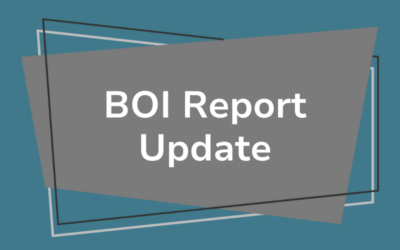One of the main reasons to create an LLC or to incorporate revolves around asset protection. The business structure legally separates the assets of the ownership from the assets of the company. The corporation may be sued (and even go bankrupt) without loss of personal property by the ownership.
As your first line of defense, I encourage you to consider the legal structure of your business. If you’re operating as a sole proprietorship (or general partnership), you’re more likely to put your personal belongings in jeopardy than if you formally register your business as a different type of business entity.
Legally and financially, you and your sole proprietorship are considered one in the same. So, if someone sues you or you can’t pay off a business loan, your personal assets might be taken as restitution.
I’m sure you’ll agree that’s not a good predicament to be in. And if you have a family to support and provide for, it can really take its toll emotionally, too.
Even the most careful and honest entrepreneurs can run into legal problems (whether justified or not) in the course of doing business. Some examples of what businesses encounter include:
- Trademark infringement lawsuits
- Work-related vehicle accidents
- Slip-and-fall accidents at their offices
- Employment discrimination
- Claims of breach of contract
- Sexual harassment accusations
- Faulty products
And money problems happen, too. If your business cannot pay its debts, you personally may have to remedy the situation with your personal bank accounts and property. Even if you follow the best practice of keeping your business and personal finances separate, you may have to pay off what your business owes with vacation funds or having your vehicle repossessed.
Incorporate Your Business
One way to help protect your personal assets is to incorporate your business. To incorporate your business, you’ll need to file a Certificate of Incorporation with the Secretary of State in the state in which you want to register your business. Once established, a corporation stands as a separate legal entity from its owners. Therefore, its legal and financial liabilities do not put its owners’ belongings at risk.
Registering your business as a C Corporation (or C Corporation electing for S Corporation tax treatment) protects your personal assets (and those of any other shareholders) from the losses, court rulings, and debts against your company. A C Corp’s liability protection typically applies to a business’s employees, directors, and officers, too.
Corporations are subject to the laws governing incorporation in the state where they are established. You should know that gaining the personal asset protection of a C Corporation requires fulfilling quite a few internal and external business compliance obligations—initially and on an ongoing basis. For example, corporations need to elect a board of directors, adopt bylaws, hold shareholder and director meetings, file annual reports, make financial disclosures, and carry out other formalities to legally operate their businesses.
Failure to meet your compliance responsibilities could result in your business losing its certificate of good standing with the state. And that will cost you. Your company might face fines, penalties, and possible suspension (or even dissolution) of your business. It could also put the personal assets of you and other owners at risk. If the state no longer considers you a legitimate corporation, you lose your protection from personal liability.
Form an LLC
If you want to establish true asset protection of your personal property, but don’t want to deal with the multitude of legal and financial formalities that come with incorporating, consider forming an LLC (Limited Liability Company). Many small business owners choose the LLC business structure because it offers personal liability protection without a lot of compliance responsibilities.
In the event an LLC faces a lawsuit or cannot pay its debts, creditors and lawyers will normally target the business’s assets rather than owners’ personal belongings. Under certain circumstances, however, owners might be held personally responsible. If they’ve personally guaranteed a business loan, put up their personal property as collateral to obtain a loan, or committed fraud, then they might find their personal assets are fair game.
To form your LLC, you must register it in the state in which you wish to operate by filing articles of incorporation. While you’ll have fewer compliance items to deal with than a corporation does, your LLC will have to stay on top of a few things. I recommend checking with your state’s Secretary of State Office to learn what it requires.
Do Not Piercing the Corporate Veil
One of the ways owners, shareholders, or members of a corporation or LLC unintentionally jeopardize their personal liability protection is by failing to keep personal and business finances separate. Doing so “pierces the corporate veil.”
When funds are commingled in that way, it removes the legal separation between a company and its owners. Therefore, a court might consider the corporation or LLC invalid and decide the owners are personally responsible for debts and legal claims brought against the company.
While keeping personal and business monies apart is a good idea even as a sole proprietor, it’s particularly critical for owners of an LLC or corporation. Don’t lose personal asset protection by getting sloppy in managing your bank accounts!
Understand the Risks Associated with Different Business Entities
In many cases, creditors will try to show that a company does not meet the requirements for that entity. If they can do so, a judge may rule that an LLC (for example) is really a sole proprietorship (or a partnership) – putting the owners’ personal goods at risk. In other cases, the actions of an owner in the course of doing business may breach any protection incorporation offers.
- Personal assets are most at risk with a sole proprietorship – there is no separation between the owner and the company.
- A partnership may offer some protection, but usually all partners are sued jointly and severally unless one partner can lay blame on another due to negligence.
- An LLC has more protection, but risk still exists when the ownership is also managing the company.
- The most protection comes from a corporation with management and ownership completely separated.
Purchase Business Insurance
In most cases, relying on a corporate shield to prevent problems is not enough. Business insurance is available for all business structures and should be obtained. Specialty insurance by type of business is also a good idea. Some common policies available include:
- Bonds – these can be performance bonds for a single activity or a general bond for all business activities of a type. Commonly, they are required for large contracts or those with serious risks.
- General Liability and Product Liability insurance – These policies protect against claims of negligence (not criminal) or performance of an item for sale.
- Professional Liability insurance, or malpractice insurance – common when a licensed professional does business with the public. They usually include an ‘errors or omissions’ rider.
- Commercial property insurance – this is the equivalent of a homeowner’s policy in the business realm.
- Home business insurance – also called home-based business insurance, this is a newer type designed for those who work out of their residences. The liability generated by working from home is usually not covered by a homeowner’s policy although it may be added on instead of being wholly standalone.
- Insurance specific to employers includes Workers’ Compensation insurance, Unemployment Insurance (usually levied as a State tax) and Disability Insurance.
As when purchasing any insurance, it pays to shop around. A Business Owners’ Policy (BOP) may be available from some carriers. The BOP combines several types of common insurance into a package and can save costs over separate policies.
Learn About Other Options
There are many types of options available to businesses (especially corporations) that allow protection from lawsuits. These may be trusts, pensions, health care plans, and tying up company assets with other obligations. Keeping assets and debts balanced (as with a mortgage) is a common way to protect a business from legal action. In this latter scenario, all excess value is passed out of the business and to the shareholders whenever possible.
One trap that small business owners must avoid is being too loose with records and the separation of the business financials from their personal assets. Called comingling, this occurs when owners mix their money with company money. Only clear records of all asset transfers will keep personal finances separate from company assets. Avoid, whenever possible, giving a personal guarantee for a company loan. Banks usually insist on it, but suppliers may waive all or part of it to get your business.
Corporate managers must also insulate themselves. In the small business situation, having one spouse as director/manager while the other (also an owner) keeps entirely separate from the business may help. There is also officer/director liability insurance available to cover negligence suits.
One of the best protections is education. Knowing what activities increase risk and keeping all company business within standards goes a long way to avoiding a business killing lawsuit.





